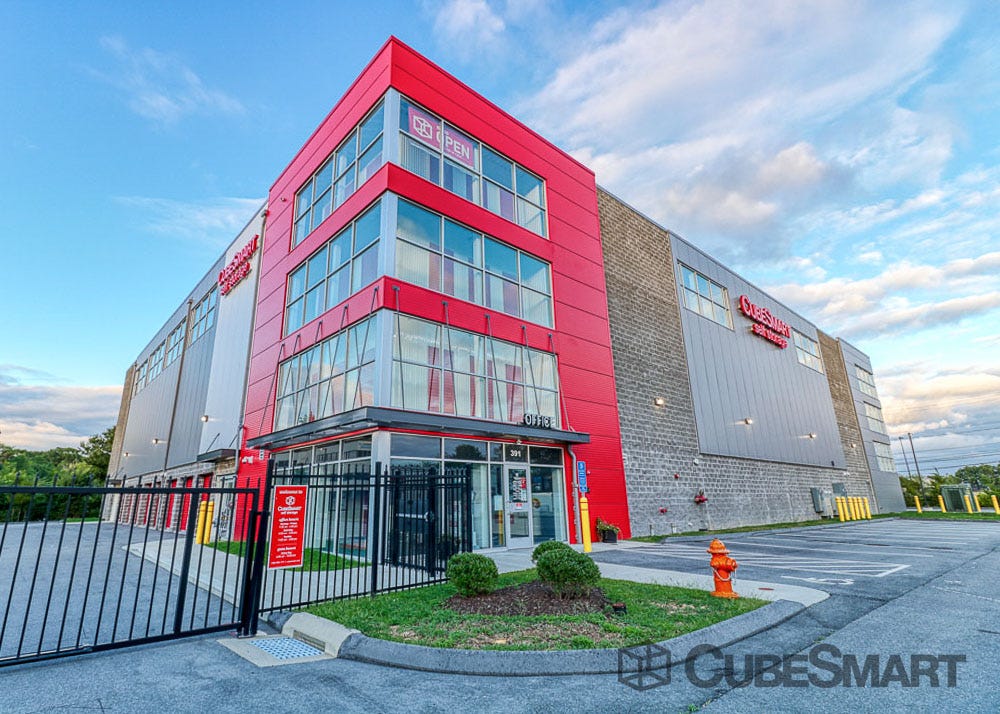TRADE ALERT - Retirement Portfolio May 2025 (New Investment)
TRADE ALERT - Retirement Portfolio May 2025 (New Investment)
When investors think about who benefits from artificial intelligence, they naturally focus on the obvious winners: chipmakers like Nvidia, cloud providers like Amazon, and data center REITs.
But as we explained in our recent article, "Winners and Losers: How AI Will Reshape Property Sectors", the ripple effects of AI extend far beyond data centers.
Today, I want to highlight a less obvious but highly compelling beneficiary of the AI revolution: the self-storage industry.
This sector isn’t flashy, but its fundamentals could quietly improve as AI transforms how people live, work, move, and accumulate physical goods. Let’s break down why self-storage could be a long-term winner.
1. Workforce Disruption = Mobility = Storage Demand
According to AI expert Vinod Khosla, 80% of 80% of all jobs could be done by AI within 25 years from now.
This means that AI is expected to displace tens of millions of white and blue-collar jobs, causing a wave of employment instability, retraining, and geographic relocation.
And what happens when people change cities, downsize, or take temporary housing? They rent storage.
Historically, demand for self-storage has been driven by life transitions—divorce, job loss, college moves, inheritance, and relocation. AI could create a prolonged period of workforce reshuffling, keeping that demand elevated.
2. Solopreneur Boom = Small Business Storage Demand
We have written before about how AI is enabling a surge in new business formation. AI is making it way easier to start a new business in almost any industry. It's breaking down barriers to entry like no technology before it.
As a result, small businesses are expected to emerge in mass, and many of them need space to operate:
Inventory for online stores
Supplies for service businesses
Equipment for remote operations
These smaller operators don’t lease warehouses. They rent flexible, low-cost storage units. Some even use them as quasi-offices, micro-fulfillment centers, or secure drop points.
In this way, self-storage becomes infrastructure for the new economy.
3. Abundance = More Stuff = More Storage
One of AI’s most disruptive promises is driving down the cost of goods.
With smarter design, manufacturing, logistics, and supply chains, we will enter a world where physical items become dramatically cheaper and easier to obtain. The likes of Elon Musk expect this to unleash a new "world of abundance".
But when people own more stuff, they also need more space to store it, especially if they live in increasingly urban, compact environments. Self-storage fills that gap.
Cheaper consumer goods = more accumulation
More home deliveries = more clutter
Smaller homes = less built-in storage
Storage becomes not just a convenience, but a necessity.
4. Operational Leverage Through AI
The storage industry is already using AI tools to improve:
Dynamic pricing for yield optimization
Customer acquisition via smarter marketing
Security and maintenance through predictive systems
This improves NOI margins and reduces headcount, making the model more profitable and scalable than ever.
And this is just the beginning. AI will only get better at:
Real-time demand forecasting, allowing operators to preemptively adjust pricing, promotions, and unit mix
Chatbot and voice assistant integration, delivering 24/7 virtual leasing agents that reduce customer acquisition cost and staff needs
Predictive churn modeling, helping owners identify tenants at risk of leaving and proactively re-engage them
Automated underwriting and credit risk profiling, streamlining onboarding while reducing delinquencies
As the underlying algorithms improve and are trained on larger data sets, storage operators will increasingly rely on AI to make better decisions, faster and more accurately, across every operational layer.
This gives well-run self-storage REITs a powerful efficiency advantage—driving higher margins, faster lease-up, and better portfolio-level performance without scaling headcount linearly.
Conclusion: The Unseen Winner
Self-storage REITs may not be at the center of AI headlines, but they may quietly be one of the biggest beneficiaries of the second-order effects:
More mobility
More entrepreneurs
More goods
More need for space
And best of all, the business model itself is being enhanced by AI, not disrupted by it. In an era where disruption is everywhere, owning the physical infrastructure that enables this new world may be one of the smartest long-term plays.
Until now, we have primarily focused our self-storage investments on international markets. But with this new AI-driven perspective, we have decided it is time to gain some exposure in the US as well.
But which American self-storage REIT is the best opportunity right now?"





